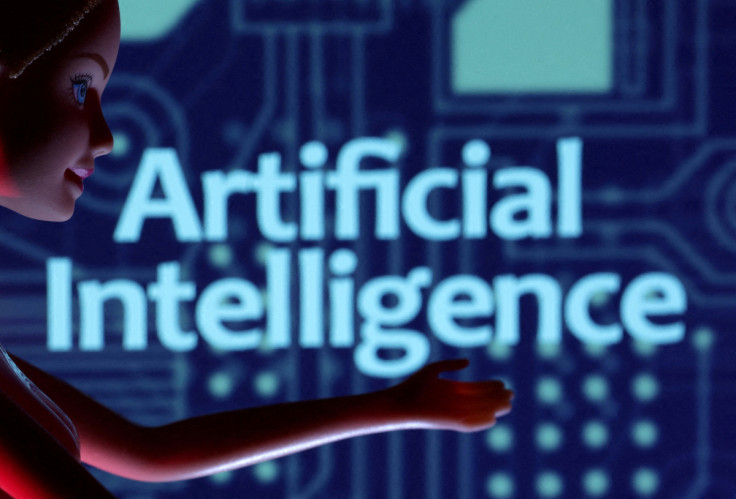Global experts set to gather at Bletchley Park for UK AI Safety Summit in November
The British High Commission announced that the summit is scheduled to take place from November 1st to 2nd and will aim to address critical concerns related to the development of artificial intelligence.

The UK government has unveiled its plans to hold the groundbreaking UK AI Safety Summit at the iconic Bletchley Park in November.
This international event, organised in collaboration with prominent AI companies, global governments and research experts, aims to address critical concerns related to the development of artificial intelligence (AI). The British High Commission announced revealed that the summit is scheduled for November 1st to 2nd.
At the core of this event lies the exploration of risks associated with AI, particularly in the context of frontier AI models. While these models have the potential to drive economic growth, scientific advancement and various public benefits, they also pose substantial safety risks if not handled responsibly.
Bletchley Park, located in Buckinghamshire, serves as the historical backdrop for the summit. With its significance in the history of computer science development and its connection to British Enigma codebreaking during World War II, Bletchley Park is the ideal venue to facilitate coordinated action toward enhancing Artificial Intelligence safety on a global scale.
To ensure the summit's success, preparations are already in full swing, with the appointment of Matt Clifford and Jonathan Black as Prime Minister's Representatives. Over the next three months, they will lead discussions and negotiations, rallying key AI nations and experts to establish a platform for collaborative efforts in developing a shared approach to mitigate AI-related risks.
Prime Minister Rishi Sunak highlighted the UK's historical involvement in pioneering future-transforming technologies while expressing concerns about the potential risks of AI. He emphasised the necessity of addressing these risks to fully embrace AI's opportunities in the years to come.
Sunak underscored the importance of international cooperation, leveraging the strengths of the AI industry, academic community and global partners to promote safe and responsible AI development.
UK Technology Secretary Michelle Donelan stressed the significance of international collaboration in shaping AI regulation. She expressed the hope that the summit would lead to a consensus among leading nations and experts on a shared approach to ensure AI's safe usage. Recognised as a world leader in AI, the UK aims to leverage its expertise in facilitating discussions that advance responsible technology development.
The location of Bletchley Park further solidifies the UK's historical leadership in overseeing new technological frontiers. Donelan emphasised AI's transformative impact, from healthcare innovations to addressing climate change.
The summit's objective is to harness AI's immense benefits securely and sustainably for generations to come. This effort will build upon ongoing work at international forums, including the OECD, Global Partnership on AI, Council of Europe and the UN, as well as standards-development organisations like the recently established G7 Hiroshima AI Process.
The UK's strong credentials in AI were highlighted, with the technology employing over 50,000 people and contributing significantly to the economy. It has been the birthplace of leading AI companies, such as Google DeepMind, and has invested substantially in AI safety research, including the creation of the Foundation Model Taskforce with an initial investment of 100 million euros.
UK Foreign Secretary James Cleverly emphasised that AI's influence is boundless, transcending borders and necessitating an international approach. He noted that Bletchley Park's historical significance as the birthplace of modern AI aligned with its new role as the epicentre of global efforts to shape responsible AI use.
Iain Standen, CEO of the Bletchley Park Trust, expressed his excitement about hosting discussions on global AI safety standards. Bletchley Park's historical role in harnessing emerging technologies during World War II aligns seamlessly with its current purpose as the forum for international coordinated action. Standen highlighted the unique opportunity to manage and monitor AI risks, ensuring the technology's safe utilisation.
The roots of AI trace back to Bletchley Park's historical role during World War II, with figures like codebreakers Jack Good and Donald Michie contributing to the technology's early development. In November, Bletchley Park will once again take centre stage as global stakeholders collaborate to establish critical guidelines that balance AI's potential with its inherent risks.
This announcement comes on the heels of the UK Government's allocation of 13 million euros to revolutionise healthcare research using AI. Furthermore, this funding will support various projects including innovations in brain tumour surgeries, treatments for chronic nerve pain and predictive systems for assessing a patient's risk of future health issues based on existing conditions.
© Copyright IBTimes 2024. All rights reserved.






